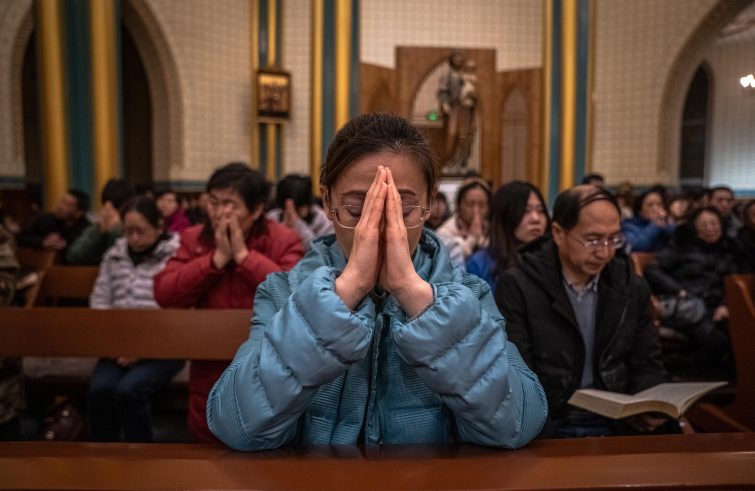
The World Day of Prayer for the Church in China is being celebrated today, May 24. Pope Benedict XVI instituted the event on the day that marks the Feast of Mary Help of Christians”, Patron Saint of the country. This feast is celebrated in China with utmost devotion and participation by thousands of Christian pilgrims who each year visit the Sheshan shrine in Shanghai, closed this year for the entire month of May due to the pandemic. “I invite you to accompany with fervid prayer the Christian faithful in China, our dearest brothers and sisters, whom I hold in the depth of my heart,” the Pope said following the Regina Coeli on Sunday. On behalf of the Church of all Asia, the Cardinal of Yangon (Myanmar) Charles Bo, in his capacity as President of the Federation of Asian Bishops’ Conferences, called on the faithful to pray for Chinese Catholics and to extend the annual Day of Prayer for the Church in China to a “Week of Prayer”, from Sunday, May 23 to Sunday, May 30. “In proposing this Week of Prayer, I am expressing my love for the peoples of China, my respect for their ancient civilization and extraordinary economic growth, and my hopes that as it continues to rise as a global power, it may become a force for good and a protector of the rights of the most vulnerable and marginalized in the world”, His Eminence writes in a note.
GlobalPrayerforChina. org website, launched a few days ago to mark the Week, features prayer and homily materials, as well as updated information on the persecution of Christians in China, the Uyghur genocide, repression in Tibet, the crackdown on democracy and human rights in Hong Kong, and the portraits of several prisoners of conscience, notably a number of bishops, Gao Zhisheng – one of China’s leading human rights advocates – and Jimmy Lai, the media tycoon arrested in Hong Kong for being a strong supporter of pro-democracy movements.
Catholic Bishop Zhang Weizhu, seven priests and ten seminarians – all of them belonging to the apostolic prefecture of Xinxiang, not recognised by the Chinese authorities – were arrested a few days ago according to reports. On May 20 Asianews press agency reported that more than 100 police officers surrounded a building used as a diocesan seminary in Shaheqiao and arrested priests, teachers and seminarians who were attending classes. Bishop Weizhu was also arrested the following day. Catholic missionary sources in Hong Kong, reached by telephone by SIR, confirmed the reports and added that restrictions on religious activities are more stringent in areas like Hebei Province, with a large majority of Catholic residents.
In fact, it was precisely in response to this issue that, on 22 October last, the Holy See and the People’s Republic of China officially extended for another two years the Provisional Agreement regarding the appointments of Bishops in China that became effective in 2018, in an effort to foster open and constructive dialogue, promote the life of the Catholic Church and the good of the Chinese people, based on the “good communication and cooperation between the parties.” However, there are different approaches to the Agreement, sources told SIR. The Vatican has consistently reaffirmed its religious value, hence the purpose of the agreement is to reconcile all Catholics in China and bring them into communion with the Pope, thereby overcoming the long-standing division between the official and underground Church.
“But at the local level”, noted sources in Hong Kong, “authorities continue to interpret the Agreement from a political angle and constantly control the Catholic Church and other Christian churches”.
In fact, on Sunday, in his greetings to the Church in China, Pope Francis made an appeal for unity: “How good and how necessary it is that the members of a family and of a Christian community are ever more united in love and in faith!”. These words “express the Pope’s love for the Chinese people” – SIR was told from Hong Kong – “but Catholics here need to see some practical action that effectively demonstrates the Church’s concern for their situation, starting with genuine sharing of their suffering. Unless a clear and firm position is taken on the key principles of justice, freedom of religion and respect for human rights, especially in cases of blatant injustice and repression, Chinese Catholics risk feeling abandoned.”


